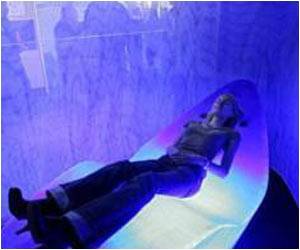At 11 centers around the world, Abraham and other cardiovascular researchers tested the feasibility, safety and efficacy of a new transvenous phrenic nerve stimulator made by Respicardia Inc.

In the pilot study, 47 patients were implanted with the device and evaluated for six months. The implant was placed below the collar bone and a transvenous stimulator lead was positioned near the phrenic nerve. After a one-month healing period, the device was turned on and programmed to the patient's sleep habits.
Researchers saw significant results, including a 56 percent reduction in overall apnea events per hour and more than 80 percent reduction in central sleep apnea events.
Source-Eurekalert















